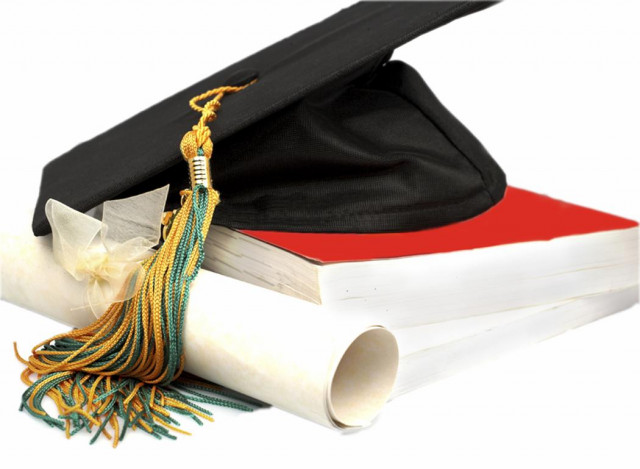Setting priorities: APC convened to discuss education reforms
Mainstream parties sign declaration on implementing reforms.

Mainstream parties sign declaration on implementing reforms. PHOTO: FILE
An all-parties conference was organised by the Institute of Social and Policy Sciences (I-SAPS) in collaboration with the Alif Ailaan on Saturday to streamline the debate on education reforms in the context of the upcoming general elections.
All mainstream political parties, including the Awami National Party (ANP), Jamiat Ulema-e-Islam-Fazl (JUI-F), Jamaat-e-Islami (JI), Pakistan Muslim League-Nawaz (PML-N), Qaumi Watan Party (QWP), Pakistan Peoples Party (PPP) and the Pakistan Muslim League-Quaid (PML-Q) participated.
The aim of the conference was to provide a platform to discuss and debate reforms needed in the education sector in Khyber-Pakhtunkhwa (K-P).
Addressing participants during the event, I-SAPS Executive Director Dr Salman Humayun said despite a long history of education reforms, the situation has not improved as much. He said most reforms were introduced and implemented as technical solutions, without much consideration for the political economy within which they operate.
“Though Article 25-A of the Constitution mandates the state to provide free and compulsory education to all children between the ages five to 16 years, it will take half a century to do this at the current rate of progress,” claimed Humayun. However, ISAPS has assessed this can be done in a shorter time frame if education is politically prioritised by the parties, he added.
Humayun also informed participants of ISAPS’s research and analysis of the education reform process in K-P, giving the provincial government credit for taking some initiatives, including making school councils operational, upgrading existing schools and providing facilities.
Talking about ANP’s performance during the last five years, party leader Bushra Gohar maintained that in addition to establishing universities and colleges, the provincial literacy rate also improved during ANP’s tenure.
Abdul Jalil Jan and Asif Iqbal Daudzai represented the JUI-F. Both men claimed the Muttahida Majlis-e-Amal (MMA) – a coalition of religious parties which governed K-P till 2008 – set a record in furthering the education sector.
If voted back into power, the JUI-F will set education as their first priority and remove all controversial subjects that are against Islam from the curriculum, they promised.
All party representatives expressed the same determination in prioritising the education sector and signed a political declaration at the end of the conference.
Key points of declaration signed by political parties
• Funds for missing facilities in schools will be provided on priority
• Legislation for implementation of Article 25-A will be formulated
• Article 25-A will be implemented in three to four years
• Schools will be allocated the resources needed to comply with Article 25-A’s requirements
• Development budgets will be utilised on the basis of data
• Non-salary budget will be allocated 12% from the salary budget
• Budgets for in-service teacher trainings will be increased
• Budget for Provincial Education Assessment Centre (PEAC) will be allocated
• Funds and land will be allocated for public schools in private housing settlements
Published in The Express Tribune, April 14th, 2013.






1724319076-0/Untitled-design-(5)1724319076-0-208x130.webp)












COMMENTS
Comments are moderated and generally will be posted if they are on-topic and not abusive.
For more information, please see our Comments FAQ